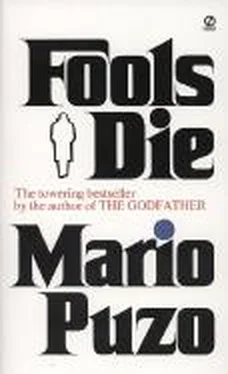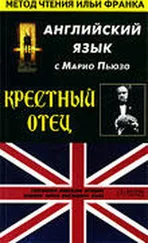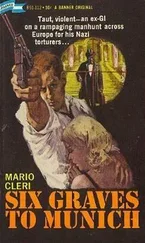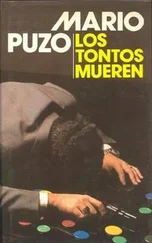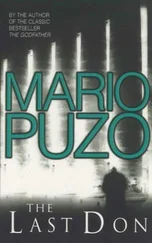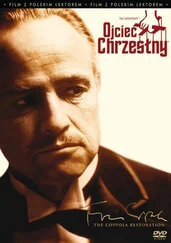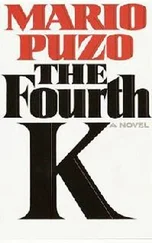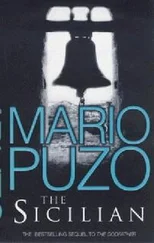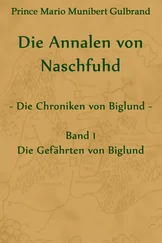Mario Puzo - Fools die
Здесь есть возможность читать онлайн «Mario Puzo - Fools die» весь текст электронной книги совершенно бесплатно (целиком полную версию без сокращений). В некоторых случаях можно слушать аудио, скачать через торрент в формате fb2 и присутствует краткое содержание. Жанр: Современная проза, на английском языке. Описание произведения, (предисловие) а так же отзывы посетителей доступны на портале библиотеки ЛибКат.
- Название:Fools die
- Автор:
- Жанр:
- Год:неизвестен
- ISBN:нет данных
- Рейтинг книги:3 / 5. Голосов: 1
-
Избранное:Добавить в избранное
- Отзывы:
-
Ваша оценка:
- 60
- 1
- 2
- 3
- 4
- 5
Fools die: краткое содержание, описание и аннотация
Предлагаем к чтению аннотацию, описание, краткое содержание или предисловие (зависит от того, что написал сам автор книги «Fools die»). Если вы не нашли необходимую информацию о книге — напишите в комментариях, мы постараемся отыскать её.
Fools die — читать онлайн бесплатно полную книгу (весь текст) целиком
Ниже представлен текст книги, разбитый по страницам. Система сохранения места последней прочитанной страницы, позволяет с удобством читать онлайн бесплатно книгу «Fools die», без необходимости каждый раз заново искать на чём Вы остановились. Поставьте закладку, и сможете в любой момент перейти на страницу, на которой закончили чтение.
Интервал:
Закладка:
Vallie asked me how long I would be in Japan and I said about a week. She didn’t mind my going, she never did mind. In fact, she was always happy to see me leave, I was too restless around the house, too nerve-racking. She spent a lot of time visiting her parents and other members of her family, and she took the kids with her.
When I got off the plane in Las Vegas, Cully met me with the Rolls-Royce, right on the landing field, so that I wouldn’t have to walk through the terminal. That set off alarm bells in my head.
A long time ago Cully had explained to me why he sometimes met people right on the landing field. He did this to escape FBI camera surveillance of all incoming passengers.
Where all the gate corridors converged into the central waiting room of the terminal there was a huge clock. Behind this clock, in a specially constructed booth, were movie cameras that recorded the throngs of eager gamblers rushing to Las Vegas from every part of the world. At night the FBI team on duty would run all the film and check it against their wanted lists. Happy-go-lucky bank robbers, on-the-run embezzlers, counterfeit money artists, successful kidnappers and extortionists were astonished when they were picked up before they had a chance to gamble away their ill-gotten gains.
When I asked Cully how he knew about this, he told me he had a former top FBI agent working as chief of security for the hotel. It was that simple.
Now I noticed that Cully had driven the Rolls himself. There was no chauffeur. He guided the car around the terminal to the baggage area, and we sat in the car while we waited for my luggage to come down the chute. While we waited, Cully briefed me.
First he warned me not to tell Gronevelt that we were going to Japan the following morning. To pretend that I had come in just for a gambling holiday. Then he told me about our mission, the two million dollars in yen he’d have to smuggle out of Japan and the hazards involved. He said very sincerely, “Look, I don’t think there’s any danger, but you may not feel the same way. So if you don’t want to go, I’ll understand.”
He knew there was no way I could refuse him. I owed him the favor; in fact, I owed him two favors. One for keeping me out of jail. The other for handing me back my thirty-thousand-dollar stash when the troubles were all over. He had given me back my thirty grand in cash, twenty-dollar bills, and I had put the money in a savings bank account in Vegas. The cover story would be that I had won it gambling, and Cully and his people were prepared to back the cover. But it never came to that. The whole Army Reserve scandal died away.
“I always wanted to see Japan,” I said. “I don’t mind being your bodyguard. Do I carry a gun?”
Cully was horrified. “Do you want to get us killed? Shit, if they want to take the money away from us, let them take it. Our protection is secrecy and moving very fast. I have it all worked out.”
“Then why do you need me?” I asked him. I was curious and a little wary. It didn’t make sense.
Cully sighed. “It’s a hell of long trip to Japan,” Cully said. “I need some company. We can play gin on the plane and hang out in Tokyo and have some fun. Besides, you’re a big guy, and if some small-time snatch-and-run artists luck onto us, you can scare them off.”
“OK,” I said. But it still sounded fishy.
That night we had dinner with Gronevelt. He didn’t look well, but he was in great form telling stories about his early days in Vegas. How he had made his fortune in tax-free dollars before the federal government sent an army of spies and accountants to Nevada.
“You have to get rich in the dark,” Gronevelt said. It was the bee in his bonnet, buzzing around as crazily as Osano’s Nobel Prize hornet. “Everybody in this country has to get rich in the dark. Those thousands of little stores and business firms skimming off the top, big companies creating a legal plain of darkness.” But none of them was so plentiful in opportunity as Vegas. Gronevelt tapped the edge of his Havana cigar and said with satisfaction, “That’s what makes Vegas so strong. You can get rich in the dark here easier than anyplace else. That’s the strength.”
Cully said, “Merlyn is just staying the night. I figure I’ll go into Los Angeles with him tomorrow morning and pick up some antiques. And I can see some of those Hollywood people about their markers.”
Gronevelt took a long puff on his Havana. “Good idea,” he said, “I’m running out of presents.” He laughed. “Do you know where I got that idea about giving presents? From a book published in 1870 about gambling. Education is a great thing.” He sighed and rose, a signal for us to leave. He shook my hand and then courteously escorted us to the door of his suite. As we went out the door, Gronevelt said gravely to Cully, “Good luck on your trip.”
Outside on the false green grass of the terrace, I stood with Cully in the desert moonlight. We could see the Strip with its millions of red and green lights, the dark desert mountains far away. “He knows we’re going,” I said to Cully.
“If he does, he does,” Cully said. “Meet me for breakfast at eight A.M. We have to get an early start.”
– -
The next morning we flew from Las Vegas to San Francisco. Cully carried a huge suitcase of rich brown leather, its corners made of dull shining brass. Strips of brass bound the case. The locking plate was also heavy. It was formidable-looking and strong. “It won’t bust open,” Cully said. “And it will be easy for us to keep track of it on the baggage trucks.”
I had never seen a suitcase like it and said so. “Just an antique I picked up in LA,” Cully said smugly.
We jumped on a Japan Airlines 747 with just fifteen minutes to spare. Cully had deliberately timed it very close. On the long flight we played gin, and when we landed in Tokyo, I had him beaten for six thousand dollars. But Cully didn’t seem to mind; he just slapped me on the back and said, “I’ll get you on the trip home.”
We took a taxi from the airport to our Tokyo hotel. I was eager to see the fabulous city of the Far East. But it looked like a shabbier and smokier New York. It also seemed smaller in scale, the people shorter, the buildings flatter, the dusky skyline a miniaturization of the familiar and overpowering skyline of New York City. When we entered the heart of the city, I saw men wearing white surgical gauze masks. It made them look eerie. Cully told me that the Japanese in urban centers wore these masks to guard against lung infections from the heavily polluted air.
We passed buildings and stores that seemed to be made of wood, as if they were sets on a movie lot, and intermingled with them were modern skyscrapers and office buildings. The streets were full of people, many of them in Western dress, others, mainly women, in some sort of kimono outfit. It was a bewildering collage of styles.
The hotel was a disappointment. It was modern and American. The huge lobby had a chocolate-colored rug and a great many black leather armchairs. Small Japanese men in black American business suits sat in most of these chairs clutching briefcases. It could have been a Hilton hotel in New York.
“This is the Orient?” I said to Cully.
Cully shook his head impatiently. “We’re getting a good night’s snooze. Tomorrow I’ll do my business, and tomorrow night I’ll show you what Tokyo is really made of. You’ll have a great time. Don’t worry.”
We had a big suite together, a two-bedroom suite. We unpacked our suitcases and I noticed that Cully had very little in his brassbound monster. We were both tired from the trip, and though it was only six o’clock Tokyo time, we went to bed.
The next morning there was a knock at the door of my bedroom and Cully said, “Come on, time to get up.” Dawn was just breaking outside my window.
Читать дальшеИнтервал:
Закладка:
Похожие книги на «Fools die»
Представляем Вашему вниманию похожие книги на «Fools die» списком для выбора. Мы отобрали схожую по названию и смыслу литературу в надежде предоставить читателям больше вариантов отыскать новые, интересные, ещё непрочитанные произведения.
Обсуждение, отзывы о книге «Fools die» и просто собственные мнения читателей. Оставьте ваши комментарии, напишите, что Вы думаете о произведении, его смысле или главных героях. Укажите что конкретно понравилось, а что нет, и почему Вы так считаете.
